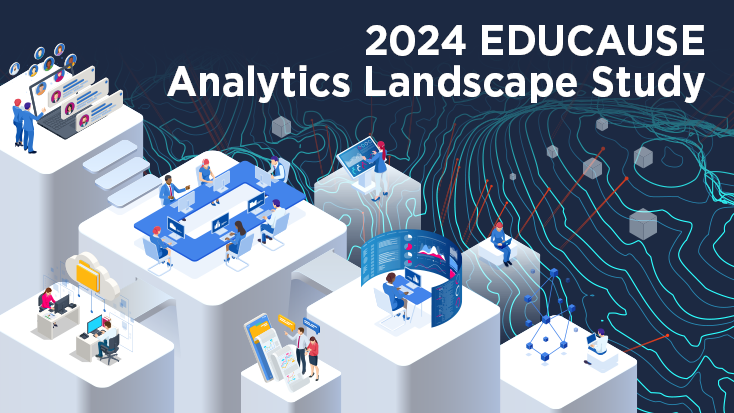2024 EDUCAUSE Analytics Landscape Study
The 2024 EDUCAUSE Analytics Landscape Study summarizes the “current state of affairs” of analytics in higher education, taking a look at several key areas of analytics:
- Specific use cases
- Readiness in data and analytics-related practices and capabilities
- Analytics workforce capabilities
- Strategic efforts toward analytics
- Policies and processes governing institutional analytics practices
- Department/unit and stakeholder roles and engagement
- Barriers and challenges to using analytics
- Current institutional resources supporting the use of analytics
Read full report | Other materials
Want to share this report? Use our toolkit.
Sentiments Toward Analytics

A majority of respondents (79%) feel that their institutional leaders are interested in or are fully committed to analytics.
Read more about these sentiments >
Use Cases & Users
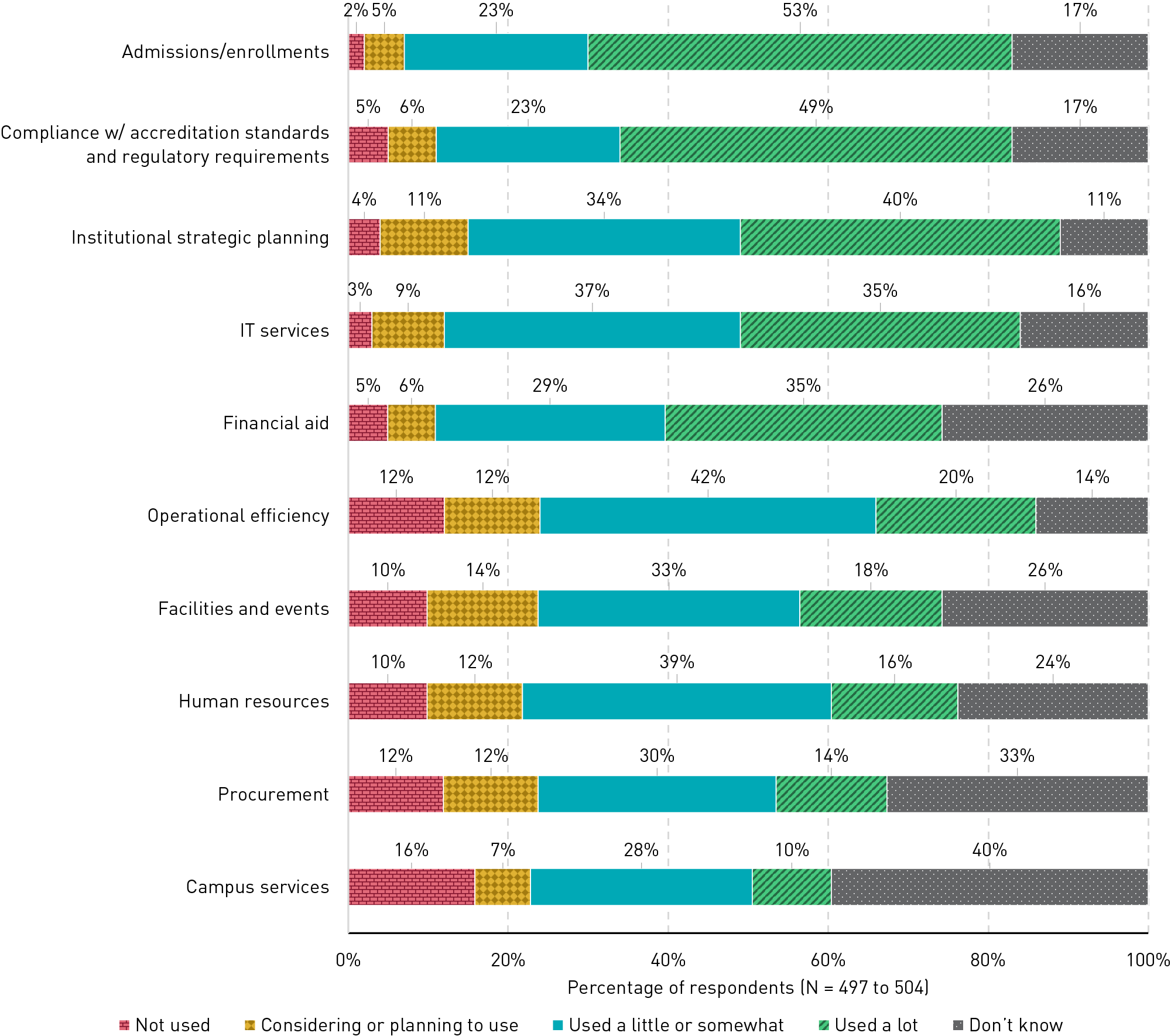
The most frequent use of analytics is to inform specific operational functions such as admissions/enrollments and compliance with accreditation standards and regulatory requirements.
Read more about use cases and users >
Resources and Support
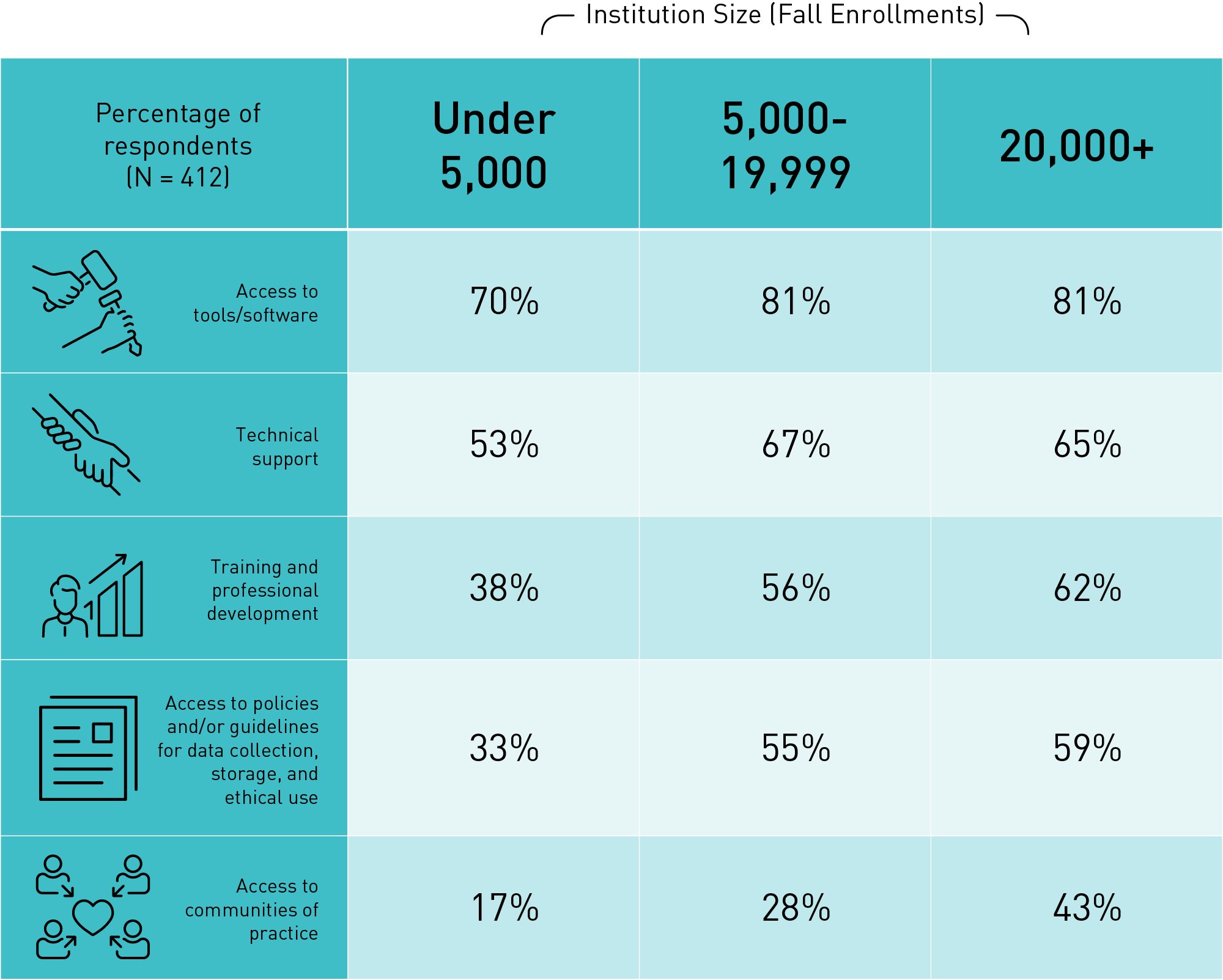
Respondents from smaller institutions have lower levels of access to resources and support for their use of analytics.
Learn more about resources and support >
Workforce
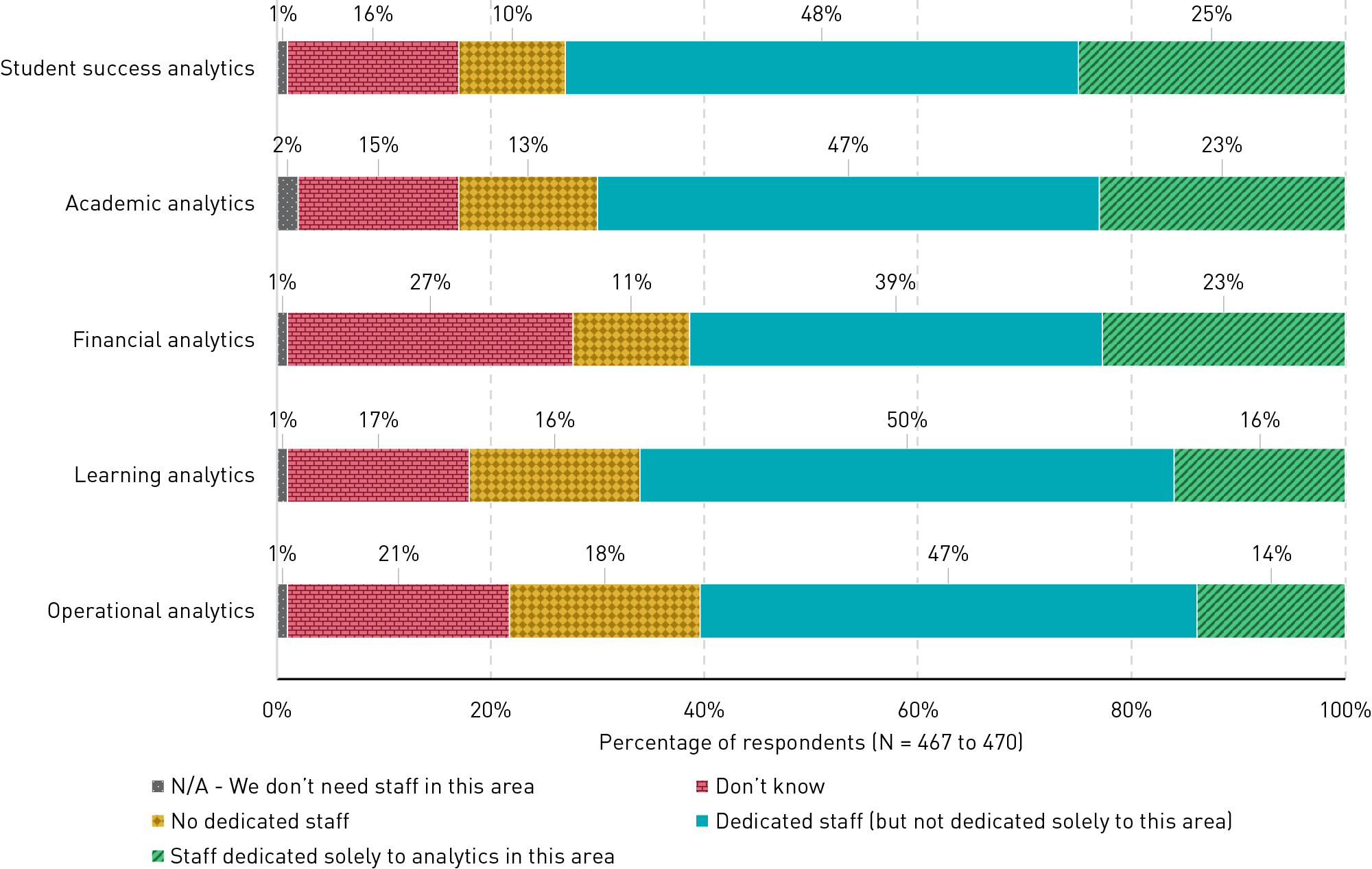
Institutions are lacking in dedicated analytics leadership and staff positions. Majorities said their institution does not have a chief analytics officer (69%) or a chief data officer (57%).
Read more about the workforce >
Strategic Planning and Governance
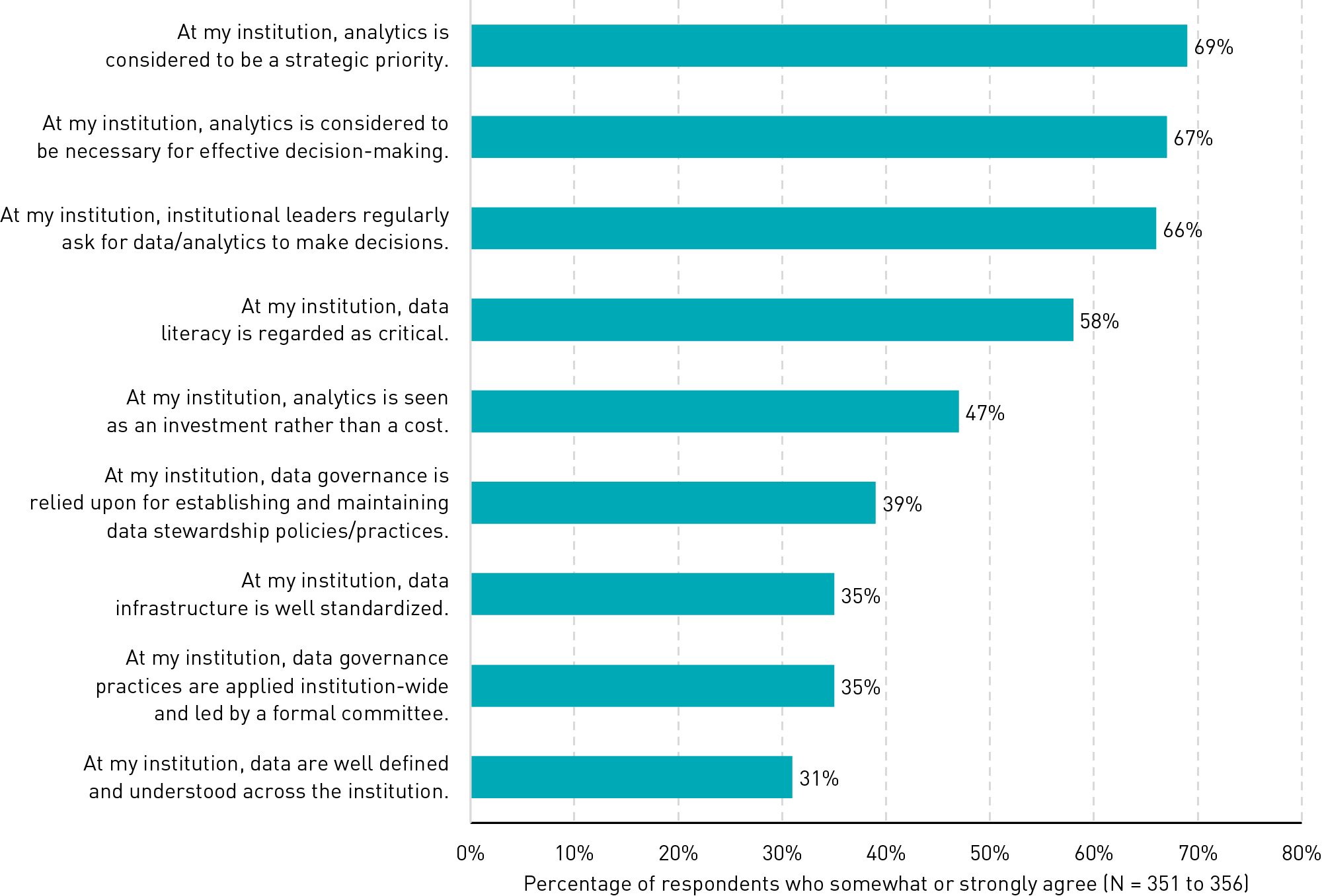
Analytics is a strategic priority, but governance is lacking. Majorities of respondents said that at their institution analytics is considered to be a strategic priority (69%) and necessary for effective decision-making (67%).
Read more about strategic planning and governance >
Analytics and AI

AI tools are slowly gaining traction in higher education analytics. In line with findings related to strategy and use of newly integrated AI tools, we found that relatively small numbers of institutions are using AI tools to support analytics.
Opportunities
Improving analytics capabilities and efforts would provide many opportunities. Respondents in general seem to understand the potentially far-reaching impact of data and analytics at their institution.
Explore the chart of opportunities >
Recommendations and Resources
What actions can institutions take to improve their analytics capabilities? Respondents identified both immediate and longer-term/ongoing actions that their institutions could feasibly take to improve their analytics capabilities and efforts.
Explore the list of recommendations and resources >
Reports and Supporting Materials
